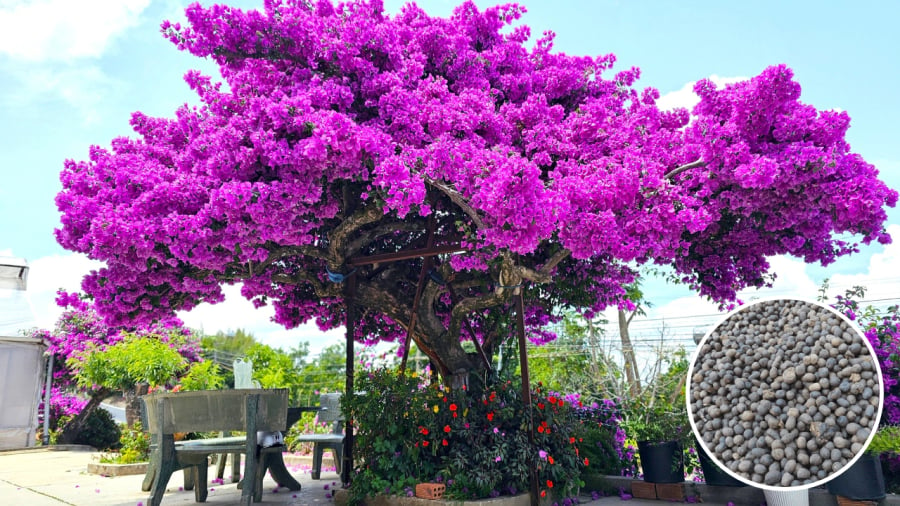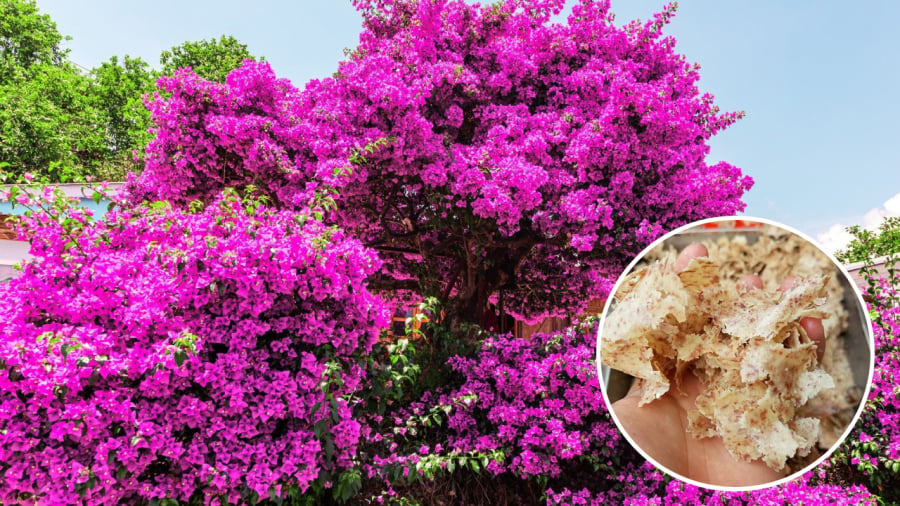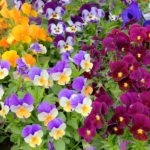Bougainvillea is a popular flower choice for many. This plant can be grown into an arbor, providing shade and creating a green and aesthetically pleasing living space. Bougainvillea is easy to grow, low-maintenance, and can bloom year-round, making it a favorite among gardeners.
While regular watering is essential, it is also important to provide the plant with adequate nutrition for its growth. Lack of nutrients can result in stunted growth and fewer blooms.
You don’t have to rely solely on chemical fertilizers; you can utilize natural resources to create organic fertilizers that are cost-effective, environmentally friendly, and promote healthy plant growth.
Chicken Manure
Chicken manure is an excellent organic fertilizer rich in nutrients. In addition to containing essential nutrients, it is also high in beneficial microorganisms that increase soil fertility, reduce salinity and acidity, and retain moisture in the soil. The N-P-K content of chicken manure is also impressive.
Spread chicken manure evenly on the ground or mix it with inorganic fertilizers before burying it around the plant’s roots. Ensure the soil is moist when applying fertilizer.
Sheep Manure

Sheep manure is an excellent organic fertilizer for bougainvillea.
Sheep manure is another great organic fertilizer for plants. It contains high levels of nitrogen, phosphorus, and potassium. One of its advantages is that it does not undergo fermentation, reducing the risk of root burn.
Crush the sheep manure and bury it around the plant’s roots, avoiding the root system. Water the plant afterward. The manure will gradually decompose, releasing nutrients that promote growth and increase blooming.
Bean, Peanut, and Sesame Cake

Bean, peanut, and sesame cake are excellent organic fertilizers for bougainvillea and other plants.
Bean, peanut, and sesame cake, by-products of the oil extraction process, can be used as organic fertilizers. These cakes are rich in phosphorous, promoting flower differentiation and prolonging the blooming period.
Crush the cakes and mix them into the soil or spread them at the bottom of the pot, keeping them away from the roots to avoid root burn. Alternatively, soak the cakes in water at a ratio of 1:10 and expose them to sunlight for 1-2 weeks. Once the solution has fully fermented, dilute it with water and use it to water your plants.
Animal Bones
Animal bones are rich in potassium, calcium, and phosphorus. You can collect bones from chicken, fish, and other meat sources after meals and use them as fertilizer for your plants. Before using them, boil the bones to remove any salt.
Sun-dry or oven-dry the bones until they are crisp, then grind them into a fine powder or crush them into small pieces. Sprinkle a spoonful of bone powder around the base of the plant once a month and water it. The nutrients from the bone powder will promote new growth and increase blooming.
Note: Do not use bone powder if the plant is currently infested with pests or diseases.
Fish Guts, Shrimp Shells, Crab Shells, and Eggshells
Utilize kitchen waste such as fish guts, eggshells, shrimp and crab shells, and fish scales as fertilizer for your plants.
Place these ingredients in a container and cover them with a thick layer of soil, about 20 cm deep. Seal the container and store it in a corner of your garden. After 4-6 months, the ingredients will have fully decomposed, and you can use the soil to pot your plants.
Alternatively, bury these ingredients directly in the ground, at least 40 cm away from the root system. Cover them with soil and water them. They will gradually decompose, releasing nutrients into the soil. Note that this mixture may produce an unpleasant odor during decomposition, so it is only suitable for outdoor plants and not for potted plants kept indoors.



































